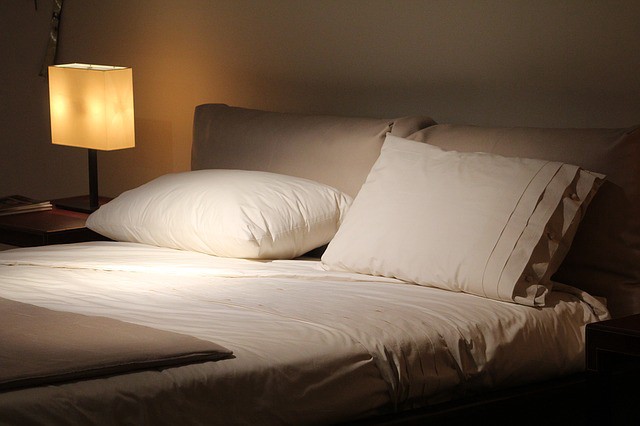Whether it’s cramming for finals in college, the birth of your child, or the bender you pulled for your company Christmas party, we’ve all had nights where we’ve skipped out on sleep.
Missing one night of sleep when life happens is fine, but if you’re regularly missing out on sleep to go on Netflix binges or pursue your side hustle, you’re killing your productivity.
High achievers might treat sleep deprivation like a badge of honor, but new research tells us that being well-rested helps us do everything at a higher level, including fitness.
As a fitness hacker and a caffeine-fueled entrepreneur, I’m conflicted whenever I skip sleep to burn the candle at both ends. In my mind, time is money.
At the same time, I don’t want my workouts to suck because I’m exhausted.
If you’re serious about fitness, you can’t afford to skimp on sleep. But amid our increasingly busy lives, how do we ensure we’re catching enough shut eye?
This post will explain why our brains and bodies need sleep, connect stellar fitness results to proper rest, and introduce steps to getting the best night’s sleep possible.
If your eyes are heavy, go take a nap and come back. If not, let’s get started.
Adequate Sleep Makes Us Feel Alert
We all know sleep recharges our brain for the next day, but have you ever wondered why you feel alert in the morning after a good night’s sleep?
The answer lies with adenosine, a chemical produced in our brains that promotes sleepiness.
Adenosine levels are low in the morning after a night of sleep and rise throughout the day. By day’s end, your adenosine level is high, which makes you feel sleepy.
Scientists have linked a lack of adenosine in the brain to alertness, so as your adenosine level decreases during sleep, your brain is essentially preparing itself to be alert in the morning.
Motivation levels are highest when mental alertness is highest, so in order to be motivated and enjoy peak performance, you need a good night’s sleep.
Muscles Recover and Regenerate During Sleep
The processes that occur during sleep benefit our bodies just as much as our brains:
- Trillions of cells are replaced during a process known as cell turnover.
- Our muscles cells degrade and proteins are replaced during “protein synthesis.”
During exercise, we’re intentionally damaging our cells and muscle fibers. While we sleep, our bodies are hard at work repairing that damage.
To better handle this breakdown in the future, our bodies add more cells to our muscle fibers during sleep so that our muscles grow back bigger and stronger.
By training, we’re hacking the process of cell turnover to accelerate muscle growth.
Of course, our bodies can’t generate stronger muscle fibers without muscle recovery.
Protein is the key to muscle recovery, which explains why we eat so many chicken breasts in the name of fitness. During sleep, protein is broken down and fed to our muscles.
After protein synthesis, our body can begin the process of rebuilding our muscles.
Sleep Deprivation is Killing Your Fitness
If sleep is beneficial to our bodies, a lack of sleep obviously has negative effects.
Here are just a few of the ways sleep deprivation is sabotaging your fitness efforts:
- Sleep deprivation has been linked to muscle loss and muscle atrophy.
- The testosterone levels of 10 healthy men dropped 14% during one study where sleep was reduced from nine hours to five for a week.
- Insufficient sleep decreases production of growth hormone, which inhibits muscle growth.
- Sleep deprivation is also linked to decreased fat loss and increased risk of chronic disease.
- Our physical performance also suffers when we don’t get enough sleep.
To sum it all up: Sleep deprivation counteracts all the positive effects of regular exercise.
I wouldn’t say exercise is pointless without proper sleep, but you’re sacrificing a big chunk of your results whenever your preferred late-night activities keep you up past bedtime.
Follow These Steps to Get Enough Sleep
By now we understand why sleep is the ultimate fitness hack. So how do we ensure we’re getting enough of it throughout the week?
Let’s start by determining how much sleep is considered “enough.”
Sleep needs vary, but the National Sleep Foundation says adults need seven to nine hours of sleep per night to avoid the negative effects of sleep deprivation.
Here are some tips to help you get a full night’s sleep:
- If you exercise during the day, you’ll tire yourself out and sleep will come faster at night.
- Don’t exercise at night. You’ll raise your energy level and adrenaline right before bed.
- Avoid drinking caffeine after dinner. An earlier cutoff is better if you can manage it.
- Don’t bring your cell phone into the bedroom or watch TV while trying to fall asleep.
- Avoid any late-night glasses of wine: Despite being a depressant, alcohol disrupts sleep.
- Find the right sleep environment, whether that’s room temperature or white noise.
- Some people like to take a warm bath before bed. (I’m a shower guy myself.)
- Don’t oversleep. You may reset your body clock, making it harder to fall asleep.
Make Your Sleep a Top Priority
Contrary to the belief I held for years, “catching up on sleep” during weekends doesn’t improve your sleep deficit. The only thing you’re doing is screwing up your body clock.
You can get back on track by putting down the cell phone, going for a water instead of a night cap, and climbing into bed before the clock reads AM.
If you’ve got a newborn or work two jobs, seize the opportunities you have for extra sleep. As a parent, I can attest to the fact that naps work wonders.
Everyone else lacks a valid excuse for not logging enough sleep every night.
Your brain, your body, and your fitness depend on you getting the Zzzzs you need!
Originally published at medium.com


